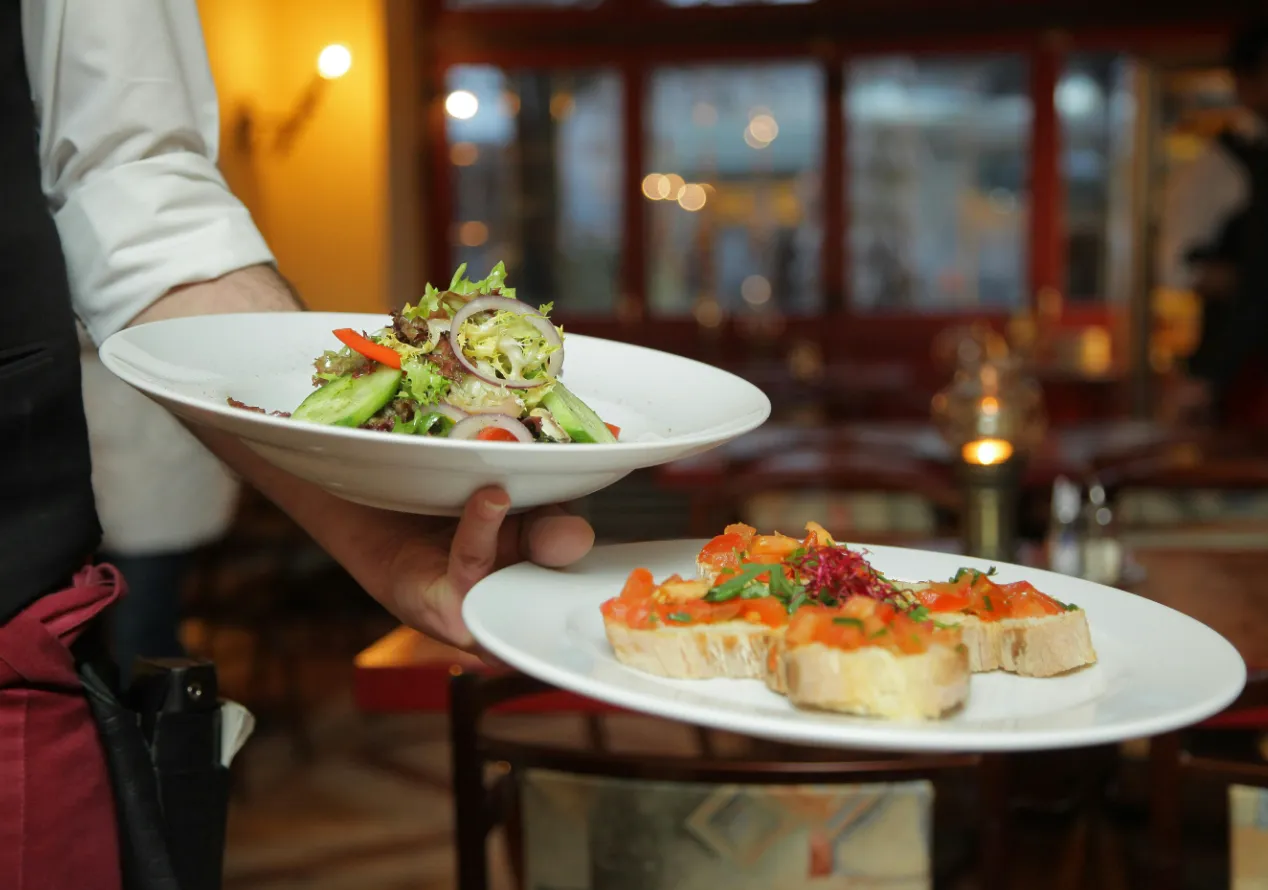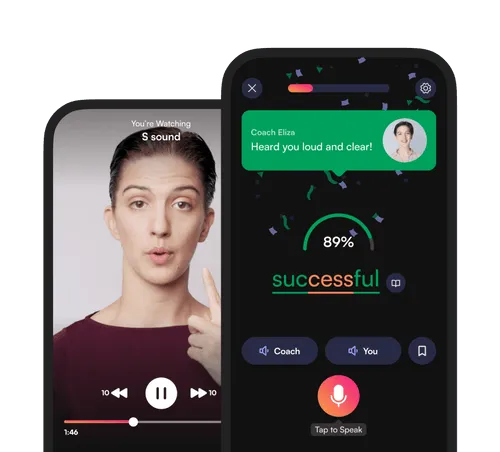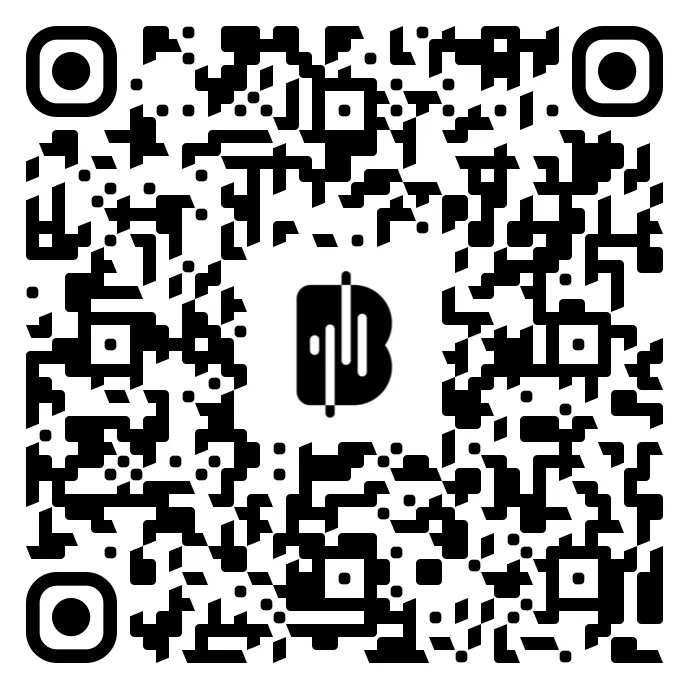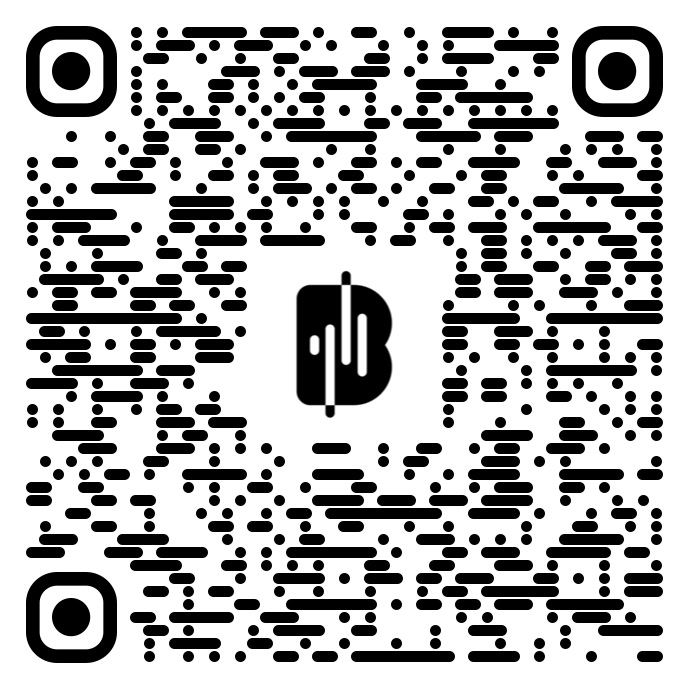Clear speech for non-native English-speaking professionals is a the crux of career success , ensuring communication accuracy and professionalism.
In the food and service industry clear pronunciation eradicates confusion, guaranteeing that guests understand menu items and recommendations. It also reflects staff professionalism and attention to detail, leaving a positive impression on guests. This is especially important if your role in the restaurant necessitates interfacing directly with a spectrum of customers.
To help you build confidence and thrive as a professional in this industry, we've compiled a list of 30 useful phrases in English for restaurant staff. So take out your notepad and start jotting things down, because you're not going to want to forget these key phrases the next time the dinner rush hits!
Before we begin, it is vital to note that not all communication styles suit every restaurant setting. For instance, a sports bar may use casual and informal vocabulary, such as “What can I get you, buddy?” On the other hand, a Michelin-starred restaurant would typically require more formal and refined language, for instance, “May I recommend our chef’s special for tonight?”
Join us as we take you through essential English phrases for restaurant workers, beginning from the start of the guest interaction right through until the end.
1. Right this way, please. English for restaurant staff, when it comes to seating guests, is all about clarity and politeness . Often, a simple "right this way" will suffice.
2. Would you like a table or a booth? When you receive walk-in customers, it's standard practice to ask them for their seating preferences, based on what you have available at the time.
3. Good evening and welcome! A warm welcome sets the tone for the entire dining experience and makes the customers feel at ease. Plus, if you introduce yourself by name, you create an immediate bond with the guests and let them know you're their go-to touchpoint, should they need anything.
4. Are you celebrating a special occasion tonight? Often, and especially in more refined restaurants, guests are there to celebrate. This greeting opens up communication and allows your guests to share their reason for dining out, kickstarting a positive interaction. And if you're located in a popular tourist city, you'll find yourself regularly serving travelers in the midst of their adventures!
Remember, this level of formality is not always called for. Sometimes, a simple “Hey there!” is enough, especially in an informal setting like a local pub or a waffle house.
Take your free accent assessment Get to know your pronunciation level and get 7 days of lessons for free on the BoldVoice app.
Start Free Trial
5. Shall I give you a few minutes with the menu? Unless your guests are regulars, they likely don't know your menu inside and out. This question avoids making them feel rushed, while still giving them the opportunity to order if they do happen to be ready.
6. Would you like to start off with something to drink? As restaurant-goers typically begin by ordering a round of drinks, this restaurant English phrase is great to kick things off.
7. Our [dish] is a must-try! When giving recommendations, referring to something as "a must-try" shows your enthusiasm for the meal.
8. If you're interested in vegetarian options, the [dish] is very popular. Usually, popular dishes are popular for a reason. Letting guests know which of your dishes are fan favorites can help them decide if they're looking for guidance.
9. Do any members of your party have any dietary restrictions or allergies I should be aware of? Understanding various dietary restrictions, such as vegetarianism, veganism, celiac's disease, gluten-free diets, and any common allergies, is imperative.
Be sure to know which menu items correspond to which restrictions, and be well-versed in the kitchen practices of your restaurant to accurately navigate any potential cross-contamination issues.
10. I'll be sure to communicate that with the chef. If your guests do alert you to any restrictions, let them know you'll relay that information to the other restaurant workers who will be preparing the meal.
Note that the word "chef" is a borrowed word from French, and that's reflected in the pronunciation. Rather than a hard /tʃ/ sound like in "cheese" or "chair," the C-H spelling at the start of "chef" is a softer /ʃ/ sound, like in the words "share" or "shift."
Check out BoldVoice coach Ron demonstrating the sound:
VIDEO
11. Would you like that neat or on the rocks?
When referring to drinks, particularly alcoholic drinks like whiskey or scotch, "on the rocks" means that the drink will be served with ice cubes while "neat" signifies without any ice.
12. One dirty martini, coming up! When a martini is "dirty," it's made with a splash of olive juice.
13. Would you like to hear what we have on tap? At a restaurant or bar, beer is served either in a bottle or can, or it's served in a glass after being poured from a keg.
When it comes from a keg, it's referred to as "draft beer" and considered to be "on tap."
14. The house wine is [wine]. Most restaurants have what they call a "house wine," typically one red and one white, which is the least expensive option and generally considered as a sort of default choice.
15. Our signature cocktail includes [ingredients]. A "signature cocktail" is the cocktail that a particular bar or restaurant is known for, often with a unique recipe that isn't found elsewhere.
16. You've ordered the [dish] with [modification], correct? In order to avoid any miscommunication, it can often be a good idea to confirm a guest's order with them before sending it to the kitchen.
17. We're 86 [ingredient].
"86" is a phrase used in the restaurant industry to signify the restaurant is all out of something.
For instance, if a cook or other colleague tells you "we're 86 salmon," that means that the kitchen no longer has any more salmon and you should navigate your guests' orders accordingly.
18. What's the open count? When a chef or manager asks you for the open count, they're asking you how many guests in the restaurant currently are seated with menus, but who have yet to order.
This is used to give the kitchen a heads up on how many orders they can expect to receive in the near future.
19. Can you run table 31 for me? In restaurant English, "run" refers to the act of bringing food from the kitchen to a particular table when it's ready to be served.
20. Have you finished the mise en place? The French term "mise en place" translates to "put in place," and it refers to the act of preparing items and ingredients in a restaurant setting.
This could be in the context of cooks preparing ingredients, or it could refer to servers/runners preparing plates for presentation.
21. Who's on the pass tonight? In particularly busy restaurants, there will often be a restaurant worker assigned to organizing the interaction between the front-of-house and back-of-house workers, generally keeping track of which plates are ready to be run and ensuring all meals are delivered to the correct table at the correct time.
This area of the kitchen is called "the pass."
22. How is everything going so far? Once you've delivered food to a table, it's important to check up on them to make sure everything is to their liking. Be sure to do this in a way that's attentive, without intruding.
23. Thank you for bringing this to my attention, I'll get this fixed right away.
Sometimes, guests are unsatisfied with their meal. When that happens, quickly and politely address their concerns.
24. I apologize for the wait. If guests are waiting an extended of period of time at any point in their dining experience, address the issue and offer your apology. By doing this, they recognize that you're aware of the issue and working to rectify it.
25. We'd like to offer you a complimentary dessert. When guests have a valid complaint, it's common to offer them something for free to make up for the error. When something is "complimentary," it's free of charge.
26. We'd like to offer you a dessert, on the house. "On the house" is another way of saying "complimentary." It's a slightly less formal way of expressing the same thing.
27. I'll be right back with your bill. Once your guests have completed their meal and finished ordering any drinks or desserts, it's time to bring them their bill - a summary of their purchases with the total owed. They can check to ensure the bill is accurate before paying for their meal.
28. Are you ready to settle up? In more casual interactions, the term "settle up" refers to paying the bill.
29. Thank you for dining with us! At the end of a meal, it's important to express your gratitude and end the interaction on a high note!
30. We hope to see you again soon! It's always a good idea to continue a friendly rapport and encourage satisfied customers to come back and dine again as you bid them farewell for the evening.
How to Master Fluent English for Restaurant Staff
The above phrases are an excellent starting point for success in the food and service industry, but for those looking to really skyrocket their communication, here are some tips to put you on the right track:
Practice Regularly Take time to practice pronouncing common restaurant phrases, menu items, and terms as often as you can.
Don't wait until you're at work to do this - practice with family, friends, and consider using a language learning app to incorporate constructive feedback into your learning.
Listen and Learn To boost English for restaurant staff, pay attention to native speakers when they speak and leverage audio resources to familiarize yourself with correct pronunciation.
Podcasts, the news, TED shows, and music can be valuable tools for listening practice.
Break Down Words Break down complex words into syllables and practice each syllable separately before putting them together.
Especially when dealing with complex menus in fancy restaurants, this approach helps master tricky pronunciations.
Embrace Humor and Idioms If you work in casual dining, you must master certain sarcasm and idioms to further expand your English vocabulary for restaurant staff.
Developing an upbeat is rapport is essential in service, and knowing these sorts of expressions can be very helpful for forming quick bonds with strangers.
Role-Playing Engage in role-playing scenarios where you practice pronouncing menu items, taking orders, and interacting with guests.
This hands-on practice can boost confidence and accuracy, preparing you to face the real deal.
BoldVoice: A Must-Use Tool for Restaurant Workers Mastering English for restaurant staff contributes to overall career growth for professionals in the food industry. For foreigners and non-native speakers especially, clear pronunciation improves communication and reflects professionalism and attention to detail. By practicing regularly, seeking feedback, and listening to correct pronunciation, you can improve your skills and advance tremendously in your career.
With the BoldVoice app, you benefit from limitless access to industry-related terms, accelerated learning, instant feedback, and a means to track your learning progress. This accent training app leverages AI and a lineup of lessons from Hollywood coaches tailored to your specific speech needs. Download the BoldVoice App today to begin your 7-day free trial!









